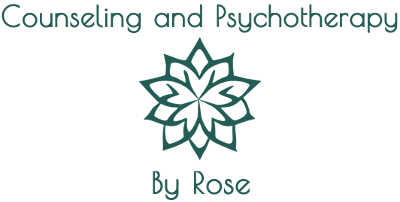Regaining Your Connection Through Couples Therapy

You used to be amazing together. You were open, supportive, understanding… passionate. Somehow, it changed. Maybe you have been drifting away from each other. Maybe you fight too often, or struggle with betrayal. You want to recreate that secure, close, and passionate connection you used to have… but how?
You’re not alone if you are feeling this way, and your feelings do not mean that your relationship is doomed. In fact, many happy couples have gone through this same experience of disconnection and doubt before getting on the path to lasting intimacy. Some experts believe this disconnection is inevitable. It is how you handle it together that can make the difference between a lifelong connection and another painful, failed relationship.
Most couples come into therapy with a single goal: make the OTHER person mend their ways. They secretly hope the therapist will be a sort of judge, telling the other person they are wrong, forcing them to apologize and change. THEN – everything will be better. Although this genuine apology and change may eventually happen through the course of therapy, it is unlikely to come through demands and lack of empathy. Rather, it is likely to come, when it comes, from a softening toward the other person – an experience of empathy, love, and caring.
Unfortunately, it is difficult to feel this empathy, love, and caring when we are fixated on our partner meeting OUR needs. We need to realize how WE are contributing to the dynamic that is keeping us apart.
This can be a humbling experience, if we allow it. When we have been hurting for quite a while, though, it can be incredibly difficult to admit our shortcomings. If we acknowledge our part, it may seem like our pain is forgotten, unimportant, or will not be addressed. Maybe we’re afraid that being vulnerable around our partner will give him or her a chance to hurt us even more. These are all valid fears, but how can we expect to reconnect if we both refuse to acknowledge our faults or be vulnerable around each other? Unless we are able to soften, it is likely that we will both retreat from each other even further, distrusting, withdrawing, criticizing, resenting, and giving up hope in our relationship meeting our needs.
One major benefit of couples therapy is that it can provide a safe place to process our pain and be vulnerable with our partner. A trained therapist can point out blind spots and highlight the needs and successes of both partners in a non-threatening way. A therapist can also provide information on various communication techniques that frequently address the dynamic that hurts both partners so deeply.
Without experiences of genuine emotional connection both in and out of the therapy room, it is my philosophy that these techniques can be methodical and cold. Communication without empathy can destroy connection and safety, which then diminishes empathy – a downward spiral.
The soul of romantic communication is a sense of connection and safety with your partner. Communication coupled with empathy increases this connection and safety, which increases empathy – an upward spiral.
So – how do you develop this empathy? It’s actually already in you, but you may have buried it deeply when you started to feel emotionally unsafe around your partner. Sometimes, it takes one person to start that upward spiral. Do you want to be the one?
If so, take some time to think about something that your partner has mentioned upsets them. You might have a bunch of defenses pop up when you think about it, but try to put those away for the time being and just focus on the hurt that your partner feels, and how your actions may have contributed to that. It doesn’t mean that you are entirely to blame, but there may have been some, for example, insensitivity on your part when you partner brought it up. Take a little time to let yourself feel some empathy for your partner for this.
When you are ready, let your partner know that you feel this empathy. If you are afraid that your partner may react in anger or push the emotional knife in deeper, maybe write an email or letter to them instead of telling them. Please also work to lower your expectations about a similar response. Empathy takes a little while to sink in, especially if your partner is not used to being vulnerable around you and may not trust that they are safe with you yet. The important part is putting a little empathy out there and starting the path towards reconnection.
If you decide you are ready for couples therapy, I would be happy to work with you, whether you are worried your relationship is over, looking to make a good thing even better, or dealing with co-parenting issues in the aftermath of your split. Feel free to give me a call at 424-571-CARE (2273) or request a call-back through my website, https://counselingsocal.com. I look forward to helping you and your relationship grow.
Rose Rigole is a couples’ therapist in private practice in Los Angeles and Orange County, California and is currently accepting new clients. She can be reached by telephone at (424) 571-2273, by email at [email protected], or via her website at https://www.couplescalifornia.com.

